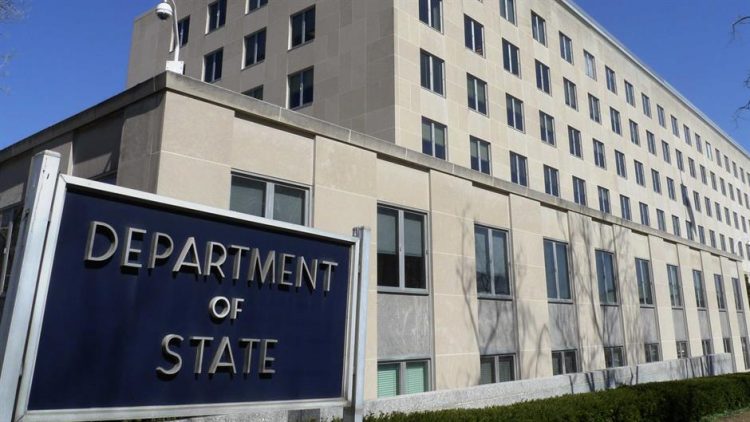
The US State Department has released a report on human rights in the world in 2020, including BiH. The report talks about justice, corruption, civil liberties, freedom to participate in political processes, discrimination, violence. Below are just some of the findings from the report.
Arbitrary Deprivation of Life and Other Unlawful or Politically Motivated Killings
Impunity for some crimes committed during the 1992-95 conflict continued to be a problem, especially for those responsible for the approximately 8,000 persons killed in the Srebrenica genocide and for approximately 8,000 other individuals who remained missing and presumed killed during the conflict. Authorities also failed to prosecute more than a very small fraction of the more than 20,000 instances of sexual violence alleged to have occurred during the conflict.
During the year national authorities did not make sufficient progress in the processing of war crimes due to the lack of strategic framework and long-lasting organizational and financial problems.
Denial of Fair Public Trial
The state constitution provides the right to a fair hearing in civil and criminal matters while entity constitutions provide for an independent judiciary. Nevertheless, political parties and organized crime figures sometimes influenced the judiciary at both the state and entity levels in politically sensitive cases, especially those related to corruption. Authorities at times failed to enforce court decisions.
Freedom of Expression, Including for the Press
The law provides for freedom of expression, including for the press, but governmental respect for this right remained poor during the year. Intimidation, harassment, and threats, including a number of death threats, against journalists and media outlets continued during the year without a systematic institutional response. Numerous restrictive measures introduced to deal with the COVID-19 pandemic were in some instances misused to limit access to information. A considerable amount of media coverage was dominated by nationalist rhetoric and ethnic and political bias, often encouraging intolerance and sometimes hatred. The absence of transparency in media ownership remained a problem.
Freedom of Speech: The country’s laws provide for a high level of freedom of expression, but the irregular and, in some instances, incorrect implementation and application of the law seriously undermined press freedoms. The law prohibits expression that provokes racial, ethnic, or other forms of intolerance, including “hate speech,” but authorities did not enforce these restrictions.
Freedom of Peaceful Assembly
The law provides for freedom of peaceful assembly, and the government generally respected this right. On May 12, however, RS police disbanded an informal gathering and conversation of approximately 10 members of the informal group Justice for David in the Banja Luka city centre, warning the participants that their public gathering was not announced to police. The leader of the group, Ozren Perduv, was summoned by police for interrogation the same day, where he was told that any similar gatherings in the future, even if spontaneous, would not be tolerated. Justice for David reported that there were an estimated 60 active court cases against Justice for David supporters in the RS court system. In 30 additional cases, the court rejected all charges.
The Justice for David movement emerged in response to the 2018 killing of 21-year-old David Dragicevic, which had not been solved as of September.
The lesbian, gay, bisexual, transgender, and intersex (LGBTI) community had planned to organize a second pride march on August 23 in Sarajevo. Due to the COVID-19 pandemic, organizers decided not to hold an actual march and moved the event online. Even before moving the event online, however, organizers faced many bureaucratic obstacles, as the Sarajevo Canton Ministry of Traffic rejected their request for a change in the march route, citing purported financial losses to public transportation companies, notwithstanding that the march would be on a Sunday when public transportation use is significantly lower. The cantonal Ministry of Interior also required the organizers to pay for excessive security measures, including the presence of two ambulances, two fire trucks, and concrete barriers at nine locations along the march route. Similar security requirements were regularly waived for other large, non-LGBTI events.
Corruption and Lack of Transparency in Government
The law provides criminal penalties for corruption by officials, but the government did not implement the law effectively nor prioritize public corruption as a serious problem. Courts have not processed high-level corruption cases, and in most of the finalized cases, suspended sentences were pronounced. Officials frequently engaged in corrupt practices with impunity, and corruption remained prevalent in many political and economic institutions. Corruption was especially prevalent in the health and education sectors, public procurement processes, local governance, and public administration employment procedures.
The government has mechanisms to investigate and punish abuse and corruption, but political pressure often prevented the application of these mechanisms.
Discrimination, Societal Abuses, and Trafficking in Persons
Rape and Domestic Violence: The maximum penalty for rape, regardless of gender, including spousal rape, is 15 years in prison. The failure of police to treat spousal rape as a serious offence inhibited the effective enforcement of the law. Women victims of rape did not have regular access to free social support or assistance and continued to confront prejudice and discrimination in their communities and from representatives of public institutions.
Worker Rights
According to informal estimates, approximately 40 percent of the workforce was unregistered and working in the informal economy.
The lack of workers’ rights was more pronounced in the private sector largely due to weaker unions in the private sector and to the broad and pronounced weakness of the rule of law.
The government did not effectively enforce all applicable laws. Authorities did not impose sanctions against employers who prevented workers from organizing. Inspections related to worker rights were limited. Ministry inspectors gave low priority to violations of worker rights; state officials focused instead on bolstering revenues by cracking down on unregistered employees and employers who did not pay taxes.
The full report can be read on this link!





Kakvo je tvoje mišljenje o ovome?
Budi prvi koji će ostaviti komentar!